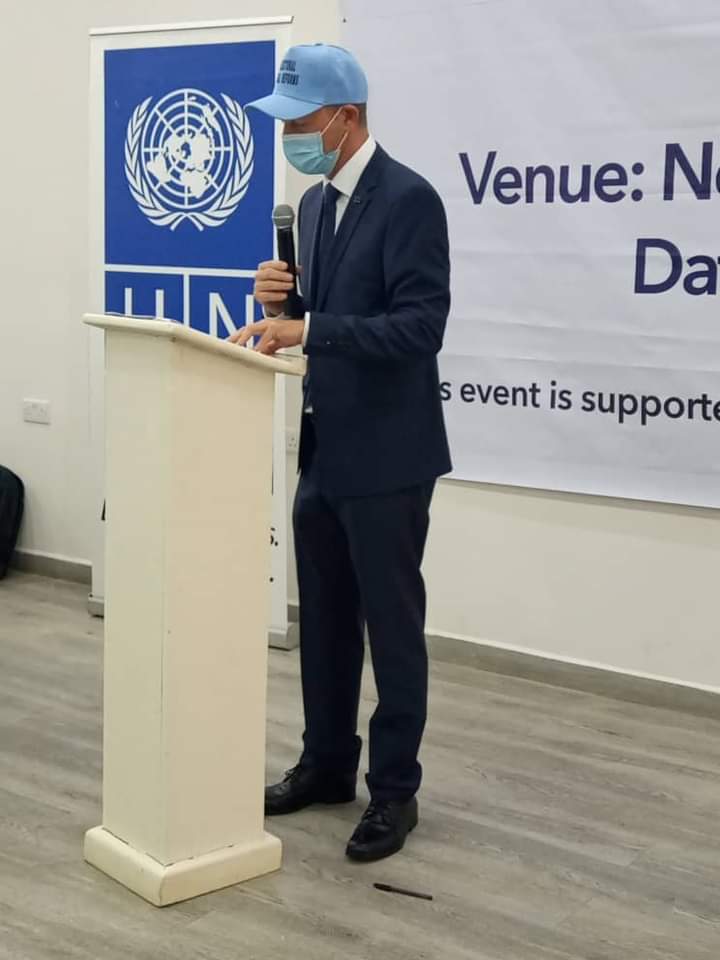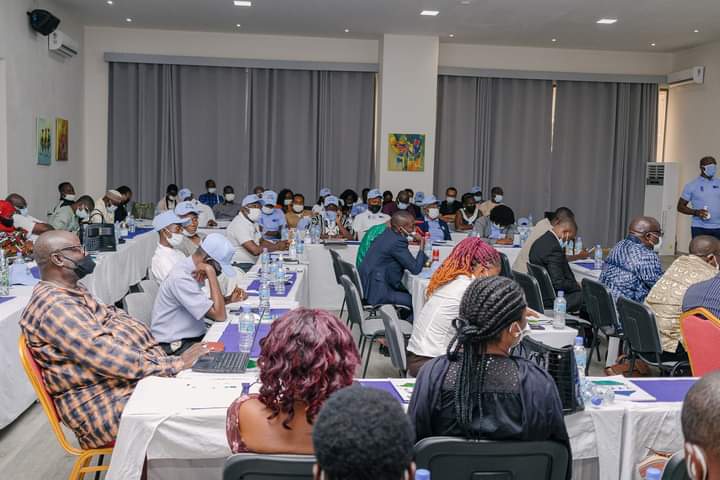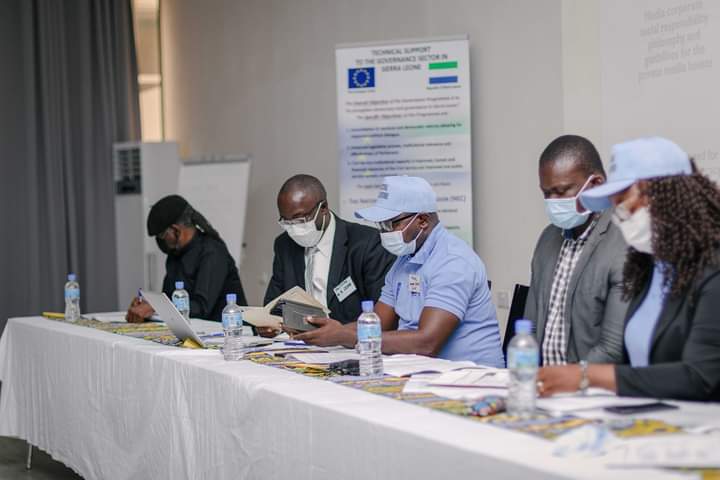The National Electoral Commission (NEC), in conjunction with other Electoral Management Bodies, political parties, civil society organisations, academia and the media, organised a 3 days’ conference on electoral legal reform to follow up on the Electoral Observer Mission (EOM) recommendations of the 2018 elections.
This initiative was financed under the 11th European Development Funds (EDF) Support to Governance Sector in Sierra Leone programme and was jointly coordinated by UNDP and the EU Governance technical assistance team.
In a bid to have in place a response framework, a National Taskforce was formed in 2019 to implement the EOM recommendations, with a focus on those with clear electoral legal reform implications. Most significantly, consensus was made to ensure timely implementation of the relevant legal processes related to the recommendations on legal reform.
Ensuing engagements amongst taskforce members and other key stakeholders accounted for a critical milestone in the electoral legal reforms, which was to hold a National Electoral Legal Reforms conference.
This engagement was considered critical to build consensus amongst Elections Management Bodies (EMBs), political parties, CSOs, MDAs and the media to aid the development of a road map on electoral legal reforms and identify the Duty Bearers and key stakeholders responsible to take the legal reform process forward in a specified period or time line.

In his presentation, the chief electoral commissioner stated that “to emphasize the necessity of this conference and to agree that if implemented, they would address the gaps in our electoral systems, eliminate violence from our politics, promote participation and inclusivity”.
The conference covered a range of discussions around six thematic areas as follows:
1. Strengthening the independence and performance of EMBs (NEC and the Political Parties Registration Commission specifically).
2. Building fair and equitable electoral rules and framework.
3. More effective mechanisms for electoral disputes resolution and conflict mitigation.
4. More equitable and inclusive electoral processes.
5. Regulating political parties and electoral campaigns.
6. Strengthening media’s role and operating environment in elections.
The representative from the Office of the president, the Chief Minister, Mr Jacob Jusu Saffa reaffirms the government’s commitment, “the government of Sierra Leone will take on and execute responsibilities that it has committed to in support of not only electoral reforms but also to enhance the operational efficiency of the Electoral Commission”.

Gerald Hatler, Head of Cooperation at the EU Delegation in Sierra Leone says “much time has passed since the 2018 elections, and there must be a clear vision on the steps to take to develop and enact legal reforms within the current electoral cycle”.
The participants expressed satisfaction that this conference was the climax of a series of engagements that have been highly participatory and consultative geared towards strengthening our state institutions tasked with the responsibility of conducting free, fair and safe elections.
The Conference provided a very timely forum for the various stakeholders to present their different perspectives on matters of common national interest in relation to elections. The exchanges and discussions were very robust and comprehensive in terms of the diversity of views and proposals on such important issues. While recognizing the need for further engagement at the implementation level, it has generally been acknowledged that the need for ensuring coordinated and timely enactment of the various legal reform recommendations identified herein cannot be further delayed without undermining the relevant legal framework for conducting free, fair and credible elections within the next two years.











